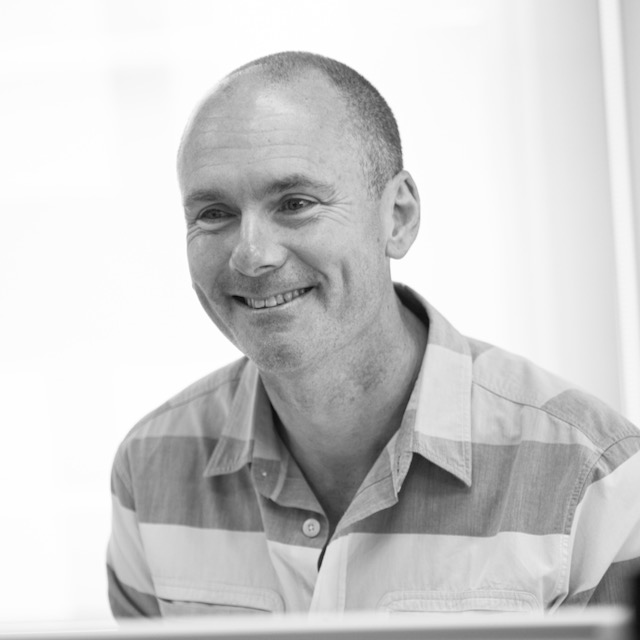We’ve just hit our 100th edition of the Clec and are thinking of significant numbers and longevity. From the 100th Clec it was only a small conversational leap to thinking about reaching 100 years old, and to Blue Zones, those few, now infamous geographical areas where there’s a much higher than average proportion of centenarians enjoying a good quality of old age life. So we wondered what does it take for a business to age well and live long.
Unicorns are vanishingly rare
It’s not a question that’s often asked. Most business investment and airtime goes into hunting for the next big thing – the Unicorn that will grow fast and deliver big quick returns – but not so much into considering what it takes to sustain organisations for the very long haul. So just what does it take?
Back in 2009, studies into the lifestyles of the people living in five of the Blue Zones uncovered nine common denominators linked to making it to a hundred.
The areas covered in the research are:
Barbagia region of Sardinia | Mountainous highlands of inner Sardinia with the world’s highest concentration of male centenarians.
Ikaria, Greece | Aegean Island with one of the world’s lowest rates of middle age mortality and the lowest rates of dementia.
Nicoya Peninsula, Costa Rica | World’s lowest rates of middle age mortality, second highest concentration of male centenarians.
Seventh Day Adventists | Highest concentration is around Loma Linda, California. They live 10 years longer than their North American counterparts.
Okinawa, Japan | Females over 70 are the longest-lived population in the world.
Blue Zones Power 9
What links them are these nine factors, labelled the Blue Zones Power 9
- Move – naturally active lifestyle
- Purpose – knowing your sense of purpose is worth up to seven years of extra life expectancy.
- Downshift – deal with stress to reduce its impact
- 80% rule – not overeating
- Plant Slant – eat mostly plants
- Wine @5 – moderate drinking beats non-drinking
- Belong – faith based communities
- Loved Ones First – committed to family
- Right Tribe – surround yourself with good people
Now, putting aside the factors associated with food and drink, there are a few of the Power 9 that seem highly relevant to businesses that want to be there for generations.
Purpose, downshifting, and finding the right tribe, all feel like ingredients for a long and happy business life.
Purpose | the north star
This one is close to our heart, as helping people businesses find and articulate their purpose is a big part of what we do.
A business needs a story to connect it to the people and markets that are most important to it. A story that starts with ‘why’, communicating clear and enduring points of difference in a me-too marketplace is invaluable, whether you’re a founder looking for investment and scale, a scale-up aiming for acceleration, or to pivot into new markets, or working in the public sector or a not-for-profit challenged to shift perceptions and change behaviours.
"Purpose outlives markets and products, and provides a north star for innovation and re-invention."
The need to find and communicate that sense of purpose has increased over the last couple of years, as the challenges of hybrid working have made it harder for teams to feel kinship with each other. Businesses need to work harder to help people feel connected to a wider mission, because without that grounding, work becomes just transactional. It lacks integrity. Work becomes something you do purely for money and not something you do because you believe in what the organisation stands for and want to make a difference. If you’re looking to build a business that endures, you want to nurture teams that care about each other and the work they do, and that are with you for the long haul.
Purpose outlives markets and products, and provides a north star for innovation and re-invention. Corning Inc. made the first commercial light bulbs for Thomas Edison. They’ve made windows for every crewed NASA spacecraft. And they created the optics for the James Webb Space telescope, currently rewriting our history of the universe. Those first and last achievements came 175 years apart. Through those years, they’ve also invented and perfected boro-silicate glass (think phials for COVID vaccines), the catalytic converter, and optical fibre too. There are lots of things they no longer do, and markets they no longer address. But the purpose is the same – fuelling human progress through the science of glass and ceramics.
Downshifting | wellbeing matters
Dealing with stress is an interesting one for businesses to manage. Stress feels like part and parcel of business life and a certain amount of stress can make work rewarding and fun. Deadlines and targets can sharpen focus and galvanise teams. Hitting goals can be a reason to celebrate and bring people together. Pressure can be the catalyst for creative thinking and positive action.
But too much stress has the opposite effect. The kind of stress that comes with unrealistic expectations or bad communications or unhealthy internal politics rarely leads to good outcomes. Neither does the stress of trying to do a great job with broken systems. There’s the stress of constantly trying to do more for less, to deliver services on reduced budgets. There’s the death by a thousand papercuts stress of trying to work when nothing works properly.
"Businesses that live a long time aren’t immune to stress. Recognising its impact and finding ways to mitigate its effects is crucial to protect the health of its people."
Even people in the Blue Zones experience stress. Stress leads to chronic inflammation, associated with every major age-related disease. What the world’s longest-lived people have that we don’t are routines to shed that stress. Okinawans take a few moments each day to remember their ancestors, Adventists pray, Ikarians take a nap and Sardinians do happy hour.
Businesses that live a long time aren’t immune to stress. Recognising its impact and finding ways to mitigate its effects is crucial to protect the health of its people. We’ve pondered previously about whether business people – like athletes – could live more seasonally.
Tellingly, employee wellbeing has been baked into the culture of some of the UK’s oldest companies. Cadbury was founded in 1824 by Quaker John Cadbury and it quickly expanded. When the company’s former factory got too small in the 1870s, George Cadbury had a new vision of the future:
"Why should an industrial area be squalid and depressing? Why should not the industrial worker enjoy country air and occupations without being separated from his work? If the country is a good place to live in, why not to work in?"
One place to examine the relationship between stress and longevity in business is to look where longevity is seldom encountered. The startup culture of today’s Silicon Valley encourages businesses to grow fast or die young. A bit like turtle hatchlings, racing for the ocean under constant threat from circling predators, few survive to ‘adulthood’. Knowing that, staff wellbeing isn’t top of the list of priorities for most of those businesses – since they’re unlikely to inherit the true cost of overwork and burnout. That’ll be passed on to future investors or acquirers. Sensible business strategy or short sightedness? Notwithstanding, the reported rates of anxiety and burnout are the highest in Tech, and Tech is one of the most burned out industries in the world.
Right Tribe | attraction and connection
The people we surround ourselves with affect our wellbeing. Smoking, obesity, happiness, and even loneliness are contagious. The Blue Zone studies showed that the social networks of long-lived people have favourably shaped their health behaviours.
For businesses building teams, this knowledge underlines the importance of bringing people on board who not only have the skills and experience you need, but who will also support the culture of your organisation. That’s not to say you’re looking to employ people who are all the same – diversity is powerful – rather you want a mix of people who respect your values and are committed to your goals. That’s your right tribe.
"You can turn the 'right tribe' lens outwards and inwards. No business is an island."
You can turn the ‘right tribe’ lens outwards as well as inwards. No business is an island, and successful ones build supportive eco-systems with suppliers and contractors who share their values. You’re already responsible for your supply chain when it comes to the environmental impact of your business, and you can deepen the impact further by collaborating with businesses who are making a positive difference on the world in other ways too. If you believe that business can be a force for good, amplify that belief with the tribe you choose to foster.
"Don't build a market. Adopt a tribe."
Last and not least, consider your customers. Your purpose, goals and values are powerful attractors for the people you’d most like to buy your stuff. Take a clothing business as an example. You could discount your carefully sourced, responsibly produced clothing to compete with a fast fashion behemoth, but you don’t need us to tell you how risky that would be. However there’s a big pool of people out there who want to buy responsibly, looking for a business just like yours. So don’t build a market – adopt a tribe. It’s more affordable for you, and your customers become your best advocates.
Right tribe is like deep roots for your business. Nurture it.






This is great food for thought – thank you!